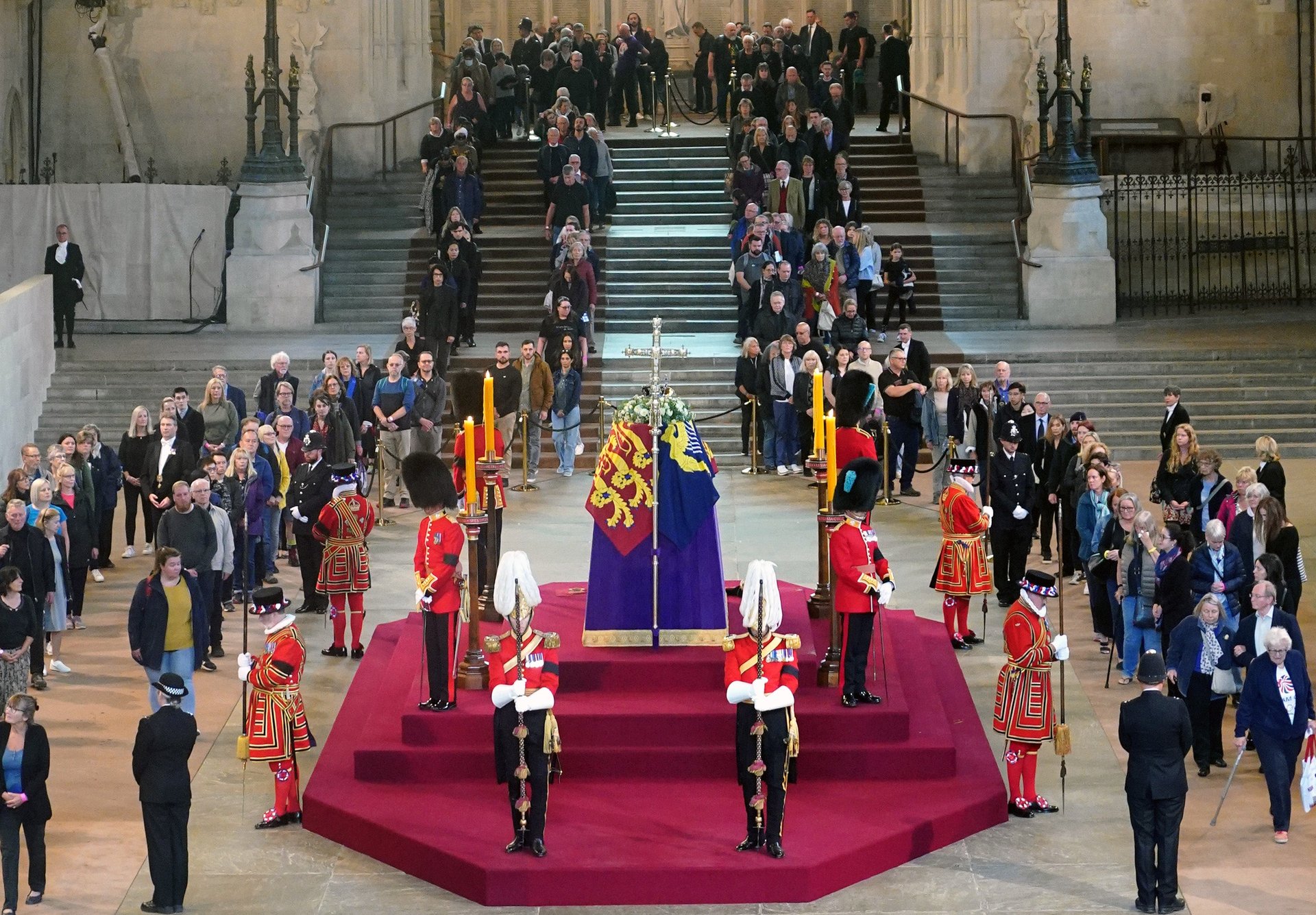How much will the Queen's funeral cost?
The British taxpayer will bear the expense of Queen Elizabeth II's state funeral.

The UK government has not yet disclosed how much Queen Elizabeth II’s funeral will cost, though a sense of the scale of expenditure can be gleaned from past royal funerals and the size of the ceremony expected for the death of a monarch.
The Queen will be buried on Monday (Sept. 19) in what is expected to be a lavish funeral paid for with taxpayer money. In addition to her family and UK officials, heads of state and international dignitaries will attend the funeral, and as many as 750,000 people will crowd into London through this week and the weekend to pay their final respects.
While the final preparations will not be announced until the day of the funeral, it will include ceremonies, rituals, a military procession, and large screens streaming the events to crowds gathered in London’s parks. In addition to the pomp and circumstance, the costs of policing and security to manage the crowds and potential threats will run into the millions.
The Queen will have a costlier funeral than any recent royal
There is no recent precedent for the cost of a state funeral; it’s been 70 years since the UK buried a sovereign, and 57 years since its last state funeral for Winston Churchill.
However, no cost is expected to spared for Queen Elizabeth II, and the expenses will likely tower over those of the funerals of other royal family members. Princess Diana’s funeral is estimated to have cost between £3-5 million ($3.4–5.5 million). The Queen Mother’s, 20 years ago, cost around £5 million. Prince Philip, Queen Elizabeth II’s husband, had a more modest funeral last year due to coronavirus restrictions. Unlike the crowds and dignitaries expected on Monday, the Queen sat alone during his funeral, in St. George’s Chapel at Windsor Castle.
Policing the large crowds that the royal family draws is an expensive undertaking. The Queen Mother’s funeral racked up some £4.3 million in policing costs, and Prince William and Kate Middleton’s wedding cost £6.3 million to police. The public response to the Queen is already larger than either of these two prior events, requiring even more by way of security expenses. The queue to London’s Westminster Hall, where the Queen is lying in state, stretches, as of Thursday afternoon, over four miles along the Thames River.
The UK has declared the day of the funeral as a bank holiday—a different kind of cost, one of foregone economic activity. Schools, hospitals, and pharmacies will close. Chain stores, from McDonald’s 1,300 outlets to apparel shops like Zara, have likewise opted to shut their doors, as have small private businesses, like pet shops and nurseries. One hotel tried to evict its guests on the day of the funeral, before walking back the decision following a backlash.
For the bank holiday during the Queen’s Platinum Jubilee in June, the decline in economic output was estimated at £2.4 billion. For the Jubilee, this loss was offset by revelers spending an estimated £6 billion to boost UK hospitality and retail. Those economic gains will likely be not recur during this more mournful occasion.
The Queen’s lavish send-off strikes a bitter contrast to the UK’s high inflation and cost-of-living crisis, which has many Britons concerned about having to choose between food and heating as winter sets in. The comparison, however, is already ruffling feathers. Piers Morgan, a fierce royalist, ranted on Twitter about the indiscretion of putting a price on a nation’s grief.
The funeral will be added to the annual price tag of the royal family. According to the royal accounts for 2020-2021, this included £86.3 million for the taxpayer-funded Sovereign Grant, £63.9 million on property maintenance, and £4.5 million for royal official travel, among other costs.
